The Conspirators

Brief Synopsis
Cast & Crew
Jean Negulesco
Hedy Lamarr
Paul Henreid
Sydney Greenstreet
Peter Lorre
Victor Francen
Film Details
Technical Specs

Synopsis
After committing an act of sabotage against the Nazis, Vincent Van Der Lyn escapes from the Netherlands to neutral Portugal. At the border, Lisbon police captain Pereira questions Vincent about his activities and warns him to honor the country's neutrality. During the questioning, Lutzke, a German, notices that Vincent's passport was not stamped by the Vichy French border patrol and follows Vincent to a café. Outside the café, a man named Du Val is shot, and Irene Duchatel, who was just speaking with him, rushes inside and sits at Vincent's table to escape the police. Vincent is attracted to the beautiful Irene and buys her a drink, but a short time later, she pretends to make a phone call and slips out the back door. Determined to find her again, Vincent goes to a casino she had mentioned in passing. At first Irene denies that they have met before, then she warns Vincent not to contact her again. Later, Irene is joined by Hugo Von Mohr, an official in the German embassy, and Lutzke, and Vincent contacts Riccardo Quintanilla, the head of the resistance movement in Lisbon. Du Val's death has upset the group as he was supposed to brief Jennings, the man who is to replace Vincent in the Netherlands. Quintanilla informs Vincent that the death also means there is a traitor in the organization. Vincent offers to meet with Jennings the following evening. In the morning, Vincent meets Irene, having learned where she lives, and takes her for a drive in the country. When he tells her that he has fallen in love with her and asks her to join him in England, she explains that Hugo saved her from a concentration camp and that he is her husband. On returning to his hotel, Vincent finds a badly wounded Jennings in his room. Before Jennings dies, he manages to tell Vincent that his killer "took the eagle." Within minutes, the police arrive, having received an anonymous tip, and arrest Vincent for Jennings' murder. When Irene learns of the arrest, she tries to give Vincent an alibi, but Vincent accuses her of setting a trap for him. Later, Vincent escapes from jail and hides in the home of a fisherman sympathetic to the resistance. Quintanilla dispatches Irene to bring Vincent a gun. She explains that she is also a member of the underground, as is Hugo, and conducts him to Quintanilla. There, Vincent proves his innocence when he delivers Jennings' message about the eagle. Secretly, Vincent and Quintanilla set a trap for the traitor, who is revealed to be Hugo. When Hugo tries to escape, Vincent kills him and finds the "eagle," a coin used for identification by the resistance, in his pocket. Pereira witnesses the killing, but allows Vincent to go free. Vincent agrees to take Jennings' place and return to the Netherlands, and Irene promises to wait for his return.

Director

Jean Negulesco
Cast

Hedy Lamarr

Paul Henreid

Sydney Greenstreet

Peter Lorre
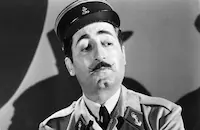
Victor Francen

Joseph Calleia
Carol Thurston

Vladimir Sokoloff

Edward Ciannelli

Steven Geray
Kurt Katch

Gregory Gaye
Louis Mercier
David Hoffman

Edward Van Sloan
Jean Jacques Du Bois
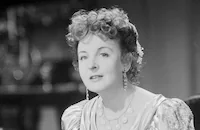
Doris Lloyd
Phil Van Zandt
John Arnold
William Edmunds
Serge Krizman
Trudy Glassford
Juan Varro
Michael Gastone
Hal Kelly
Rod De Medici
Jack Chefe
Eddie Abdo
John Bleifer
George Sorel
Frederick Brunn
Adrian Droeshout
Roger Neury
Jacques Lory
Tony Paton
Oscar Loraine
Christine Gordon
Marguerita Sylva
Isabelle Lamal
Walter Bonn
Paul Regas
Veronica Pataky
Alexander Sacha
Billy Roy
Sonya Yarr
Carla Boehm
Leon Belasco
Alphonse Martel
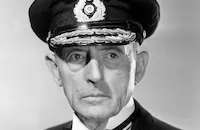
Frank Reicher

Tony Caruso
Pedro Regas
Nick Thompson
Ludwig Hardt
Paul De Corday
Robert Tafur
Manuel Lopez
Crane Whitley
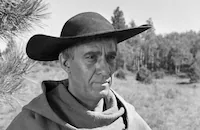
Martin Garralaga
Carl Neubert
Dick Botiller
Jay Novello
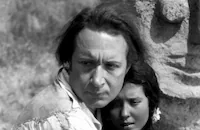
Monte Blue
Neyle Marx
Ed Hyans

Harro Meller
Fred Nurney
Arno Frey
Beal Wong
Luis Alberni
Saul Gorss
Art Miles
Robert Barron
John Mylong
Otto Reichow
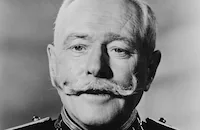
George Macready

Carmel Myers
Rafael Storm
Emil Rameau
Leon Lenoir
Erno Verebes
Charles Haefli
Louise Lane
Peggy Watts
Kenner Kemp
Buddy Sullivan
John Marlin
Myna Cunard
Carlos Albert
Manuel Paris
Antone Northpole
Jock Watt
Joaquin Elizondo
Michael Smith
Hans Moebus
Gordon Harrison
Nita Pike
Curt Furberg
Maurice Brierre
Paul Power
Alex Akimoff
Brooks Benedict
Alex Tamaroff
Eugene Beday
Ross Gould
John Moss
Sid D'albrook
Sayre Dearing
Gordon Dumont
Oscar Gould
Larry Arnold
Tony Carson
Clinton Carey
Nick Borgani
Eumenio Blanco
Fred Godoy
Paul Bradley
Raoul Freeman
Tom Tamarez
Paul Ravel
Jack Santoro
Harry Semels
Gertrude Keeler
Fred Fisher
Leonid Snegoff
Trevor Bardette
Crew
Gerald W. Alexander
Jean Burt
Reginald Callow
Jack Chertok
William Conger
Bill Cooley
Herschel Daugherty
Henry De Silva
Paul Detlefsen
Mildred Duncan
Arthur Edeson
Clarence Eurist
Gloria Fayth
Rudi Fehr
Leo F. Forbstein
Charles David Forrest
Bud Friend
Milton Gold
Albert Greenway
Anton Grot
Robert B. Lee
James Leicester
William Mcgann
Wally Meinardus
Jack Moffitt
Marie Pickering
Vladimir Pozner
Leonid Raab
Leah Rhodes
Leon Roberts
Ruth Roberts
Leo Rosten
Bert Shipman
Max Steiner
Bill Studinar
Walter Tilford
Willard Van Enger
Johnny Wallace
Jack L. Warner
Robert G. Wayne
Perc Westmore

Videos
Movie Clip



Trailer
Film Details
Technical Specs

Articles
The Conspirators
Maybe it's unfair to compare any movie to Casablanca, but The Conspirators was made by Warner Bros. specifically to recreate some of the Casablanca magic (and more importantly, the Casablanca box office receipts). It's interesting to see the movie and look at why it didn't really work. It's a handsome production, with great sets, costumes and cinematography, but the characters and story just don't cast a spell. Lamarr was billed as the world's most beautiful woman when she arrived in Hollywood in 1938 from Austria, but her skill in picking roles did not match her looks; she turned down the role of Ilsa in Casablanca because "I thought that story was too complex." And so she found herself most often cast in second-tier films as an exotic woman of mystery. Her movies made money, however (including The Conspirators). She was gorgeous, and that has always been as good a reason as any for audiences to go to the movies.
Paul Henreid seemed to agree with the general assessment of Lamarr in his autobiography, writing that "The Conspirators...was my first movie with Hedy Lamarr, and my first introduction to her brand of wooden acting." He goes on about how the combination of Lamarr's lousy intuitions and Jean Negulesco's general incompetence in directing bad actors led the director to implore Henreid to secretly and subtly direct the actress for him. Henreid says he didn't want to do it but did it anyway, for the good of the picture.
Producer Hal Wallis was fired by Jack Warner early in the shoot because Warner was infuriated that Wallis got so many on-stage mentions on Oscar® night, since two movies Wallis had produced - Casablanca and Dark Victory - claimed most of the awards. With Wallis gone, all the footage that had been shot for The Conspirators was discarded, the script was changed, and some sets had to be rebuilt from scratch. The stars started making unreasonable demands, and the picture became secretly known around the lot as "The Constipators," starring "Headache Lamarr" and "Paul Hemorrhoid." Luckily, supporting players Greenstreet and Lorre remained professional and committed to the picture, and their scenes are probably the best thing about the movie. This was the fifth of eight movies the duo made together.
The movie was savaged not only by critics but even by Frederic Prokosch, the author of the novel on which the film was based, who wrote a critique of it in The New Republic. For young director Jean Negulesco, it was a tough pill to swallow, especially after his previously acclaimed film, The Mask of Dimitrios (1943). A kind, understanding letter from veteran director Edmund Goulding helped Negulesco through it. "I beg you not to take The Conspirators to heart," Goulding wrote. "I have a feeling that the little smacks in the reviews might be creeping somewhere into your insides, and I would be very sorry if they did¿ Take the advice of an old pal and sweat, from now on, on the script. Stall, delay, do anything¿ get the script right. I had an experience exactly like The Conspirators once and out of it came a nervous breakdown. Everyone has them and they hurt. And you, essentially a painter and artist, are probably hurt more than the man who entered the business via the real estate business." Negulesco was so touched by the letter that he reprinted it in his memoirs with the hope that it might "go one helping a few honest beginners who make their life a challenge to aim for perfection."
Producer: Jack Chertok, Jack L. Warner
Director: Jean Negulesco
Screenplay: Vladimir Pozner, Leo Rosten, Frederic Prokosch (novel)
Cinematography: Arthur Edeson
Film Editing: Rudi Fehr
Art Direction: Anton Grot
Music: Max Steiner
Cast: Hedy Lamarr (Irene Von Mohr), Paul Henreid (Vincent Van Der Lyn), Sydney Greenstreet (Ricardo Quintanilla), Peter Lorre (Bernazsky), Victor Francen (Hugo Von Mohr), Joseph Calleia (Capt. Pereira).
BW-102m. Closed captioning.
by Jeremy Arnold

The Conspirators
Quotes
This may seem to you melodramatic, but indulge me, please, I like melodrama.- Ricardo Quintanilla
Trivia
Notes
The film's working title was Give Me This Woman. Author Frederic Prokosch's first name is spelled "Fredric" in the onscreen credits. Hollywood Reporter news items add the following information about this production: Jack Chertok took over as producer from Hal B. Wallis when the latter ended his contract with the studio. Warner Bros. requested that David O. Selznick loan Joan Fontaine to the studio to perform in the picture. A October 14, 1943 Los Angeles Times news item reported that Frank Gruber was writing the screenplay. According to the film's press releases, Helmut Dantine, Humphrey Bogart and Ann Sheridan were to star in the picture, which was first advertised as a Casablanca "reunion". Hedy Lamarr was borrowed from M-G-M for the film.















